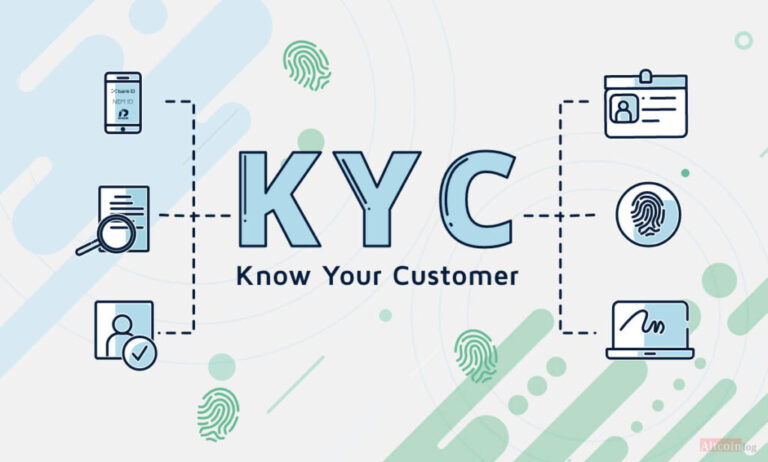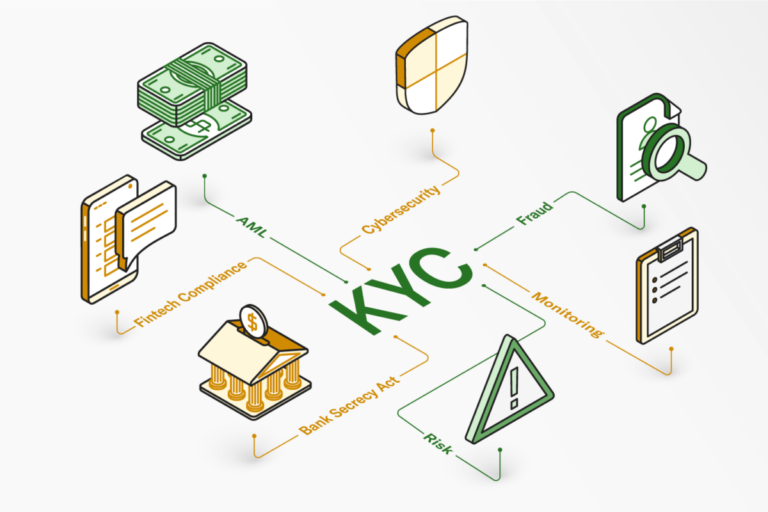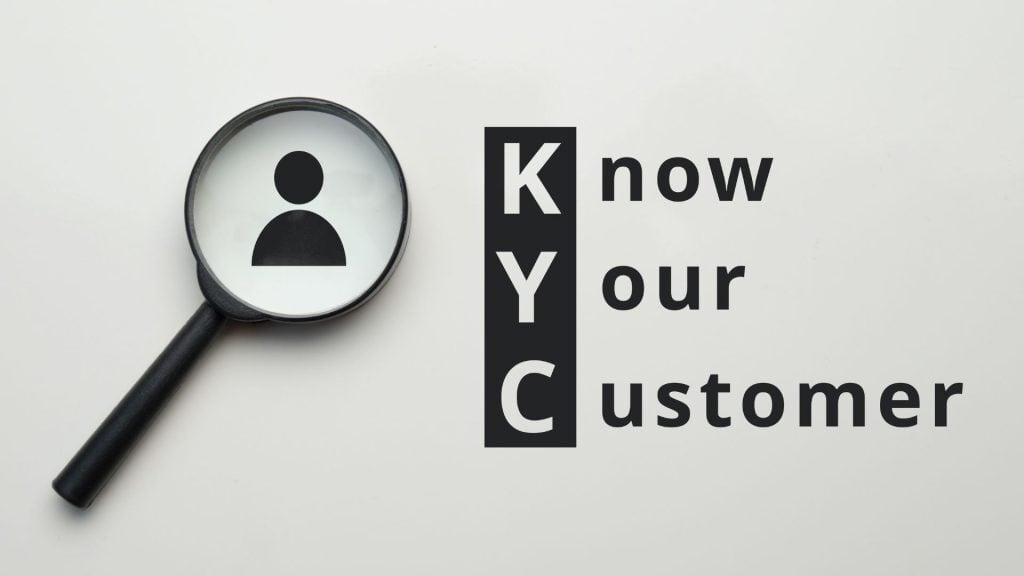Cryptocurrencies are destroying the world of finance. However, because cryptocurrencies are cryptographically secure on their blockchains, transactions between users are generally anonymous and happen instantly. Because of this, crypto transactions provide an opportunity for criminals who want to escape conventional controls.
Global regulators are now paying more attention to cryptocurrencies than ever. For example, in 2019, the SEC, FinCEN, and CFTC classified crypto exchanges as Money Service Entities (MSBs). This meant that these businesses were subject to know your customer (KYC) and anti-money laundering (AML) regulations under the Bank Secrecy Act of 1970.
In this regard, before any client opens an account on a cryptocurrency exchange, they are now asked to complete the KYC procedure. This crypto KYC process involves the exchange verifying your identity and proving that you are who you say you are.
How does KYC work with cryptography?

Some exchanges may allow a client to create an account before they go through the crypto KYC process, but these accounts are usually heavily restricted until the identity verification process is completed. For example, many exchanges will not allow a client to actually purchase cryptocurrency or withdraw funds until their identity has been verified. Others set limits on deposits.
Each crypto exchange will handle KYC a little differently. However, generally speaking, during the KYC process, you will need to provide the cryptocurrency exchange with:
- Full name
- Date of birth
- Residence address
After that, the crypto exchange will ask you for a photo of a valid government-issued ID, such as a driver’s license or passport. They will then use this information to verify your identity. Once your identity has been successfully verified, they will grant you access to their services.
In some cases, a cryptocurrency exchange goes through an enhanced customer verification process. In these cases, you may also be asked to provide them with a selfie and some additional information. Financial Action Task Force (FATF) recommendations suggest that crypto exchanges should adopt a risk-based approach to crypto-KYC compliance. This means that low-risk clients will face easier measures, while high-risk clients will have to comply with more intensive crypto KYC compliance measures.
In addition, the FATF guidelines also suggest that crypto exchanges must monitor their customers at all times.
They must also:
- Verify clients to ensure they are not subject to international sanctions.
- Make sure they are not Politically Exposed Persons (PEP).
- Check client for hostile environments.
Can I buy cryptocurrency without KYC?

Buyers who prefer to remain anonymous can buy cryptocurrency using decentralized exchanges and bitcoin ATMs. Although decentralized exchanges have security measures designed to prevent fraud, there is still a chance that a customer will be scammed. On top of that, decentralized exchanges tend to be less user-friendly than high-quality centralized exchanges, and they cost users more in transaction fees.
For this reason, even though buyers have options if they wish to remain anonymous, it is far better for legitimate buyers to go through the crypto KYC process on a regulated exchange. This is especially true as the process can be completed incredibly quickly.
Does KYC affect anonymity and decentralization?
By its very nature, a decentralized economy is prone to KYC-related issues. After all, decentralized services are designed to allow customers to remain anonymous and keep their personal information private from any central authority. Because of this, many crypto firms cannot identify who their customers are.

However, regulators are becoming increasingly unhappy with this situation, and while anonymity is affected, even the most reluctant crypto exchanges have been forced to introduce steadily stricter crypto-KYC measures after facing pressure from regulators.
However, it is important to note that KYC requirements do not apply to decentralized exchanges (DEXs). This includes all companies that organize trades using smart contracts instead of a central trading center.
These institutions are not subject to applicable regulations as they are not considered financial intermediaries or counterparties. This is because their users trade with each other directly using the infrastructure provided by the DEX.
However, while DEXs are not currently bound by KYC requirements, regulators around the world are constantly changing laws and regulations governing crypto-KYC. As a result, DEXs may be regulated in the future.
What are the benefits and why does cryptocurrency need KYC?

KYC is important in a financial context as criminals use a range of strategies to bypass controls. Fortunately, by compiling a detailed and accurate risk profile of each client, a crypto exchange can easily identify users who abuse their services and prevent crimes such as money laundering and terrorist financing.
KYC helps build trust and transparency in customer relationships
Verifying a user’s identity can help increase transparency and build customer trust. After all, if a customer is confident that your cryptocurrency exchange is taking proactive precautions to protect their accounts, they are more likely to continue using your service.
KYC reduces the risk of financial crime
Cryptocurrency scams have been on the rise since 2016. In fact, Forbes suggests that there were 80,000 cases of cryptocurrency scams in the US alone in 2020. This is 24,000% more than in 2016. Further research has also shown that illegal cryptocurrency transactions amounted to about $14 billion in 2021, a 79% increase from $7.8 billion in 2020.
This shows exactly why regulators are so interested in crypto exchanges implementing robust identity verification and KYC procedures. With these measures, crypto exchanges can not only reduce the likelihood of financial crime, but also reduce fraudulent activity and increase the reputation of the market.
KYC helps stabilize cryptocurrency exchanges
The cryptocurrency market is known for its volatility. However, some of this volatility is fueled by anonymous transactions that are illegal in nature.
Strong KYC policy ensures future compliance of companies
The legal expectations associated with KYC compliance continue to change and evolve, with many exchanges struggling to adopt these rules. As a result, crypto exchanges that implement effective KYC policies stay ahead of the game. This means that instead of trying to catch up, these cryptocurrency exchanges can instead focus on improving conversion rates and optimizing transactions.














